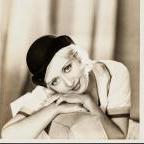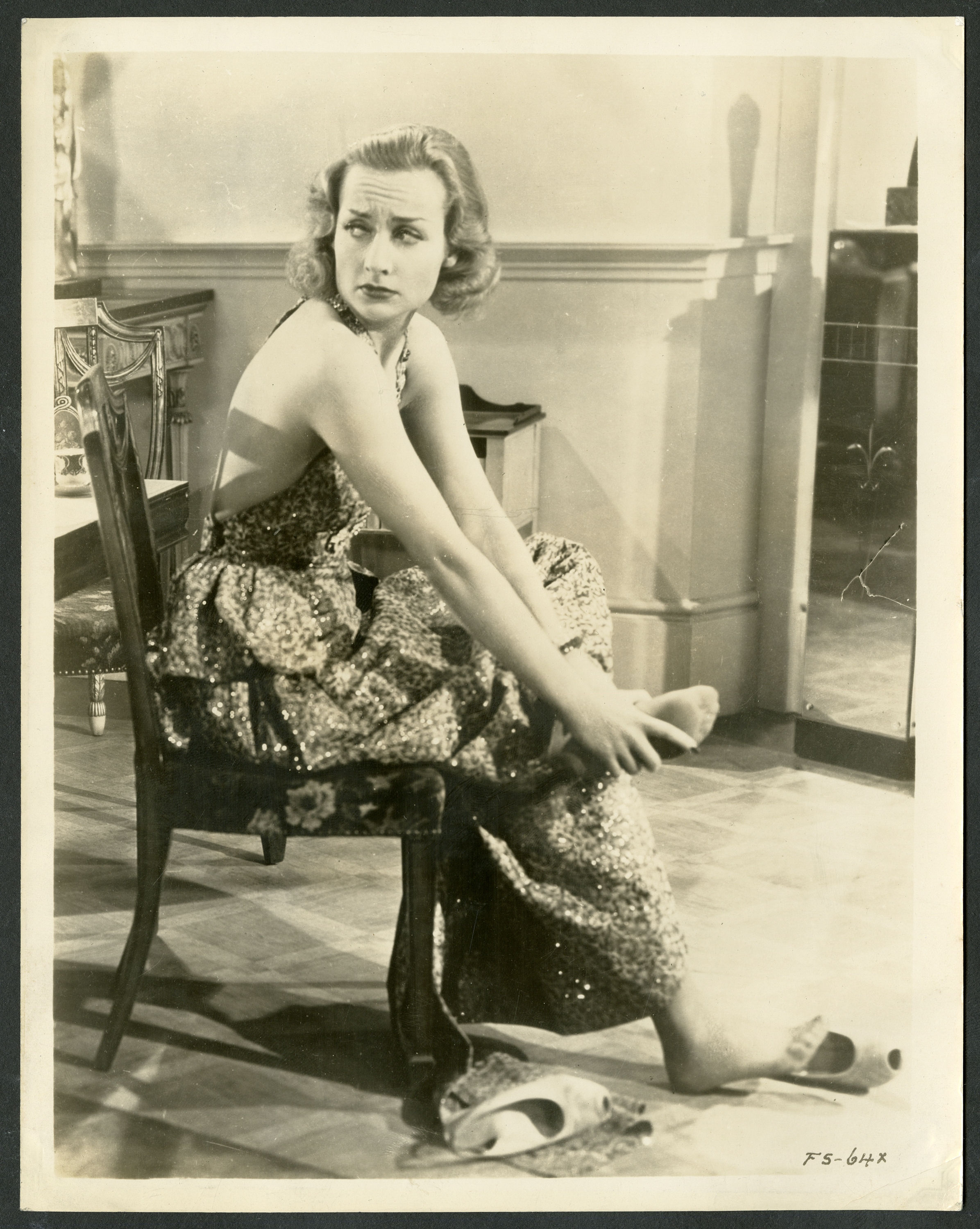-
Posts
6,083 -
Joined
-
Last visited
Content Type
Profiles
Forums
Events
Blogs
Everything posted by BERIGAN
-

new "Euclid Records" location in St. Louis
BERIGAN replied to Rooster_Ties's topic in Miscellaneous Music
Man, the folks here with St. Louis connections gets larger all the time! Born and raised there til 1983....I am drawing a mental blank about Euclid Records...was it there in the late 70's/early 80's??? I do remember going somewheres besides vintage vinyl http://www.vintagevinyl.com/ can't remember if it was Euclid records or not...peaches was kinda cool, at least it seemed so back in the day.... -
Dr J, Just now seeing your thread....it's great! I found it at a DVD store going out of business, only DVD audio I own...I mentioned it on the old board in a thread about what was the best sounding lp,scad,DVD, cd, 78 you ever heard , and this was my choice for the best I ever heard....just put it on again, and still feel the same way...feels like Red and the gang are in my living room! Hope you won't be disappointed, but don't think you will...oh, and music is ok as well! EDIT. Well, I did notice a couple pops almost like a record! Perhaps my Toshiba has a problem....
-
Amen to Georgie Auld ! I think that some people might be turned off just cuz of his funny name (Georgie, Bunny, Muggsy-you had to be tough to have names like those!) I don't know, but I think he was a heck of a player who would be perfect for a select or whole set!
-
Glad to see you back Mnytime!!! Hospitals are no place to get well! Home will straighten you out!
-
Rooster, which one is you? :rsmile:
-
I don't have a dish, but would love to here what others have to say about 'em! I am tired of "digital" channels above 100, but not below with our cable, so if you tape anything off of TCM, it looks like crap! And I am really tired of Comcast cable ads telling us how crappy dishes are, showing dopes trying to install systems by themselves, when every dish company has a free installation program! Greg, I don't recall, but does DirecTV offer the TIVO like device,(And did you get it) or is that the other company...the name of which has escaped from my brain...late, must get sleep!
-
jlhoots, I made this my signature line(s), I put it in a different color, but perhaps I need to do more to make sure no one confuses were post ends, and signature starts...I'm not clever enough to be ironic!
-
I am at a mere 60%...thank God for the Non-political forum....
-
Damn straight it matterered, suh! It means the Yankees will take Game 6 and the Series in New York rather than Atlanta. Actually, I have ambivalent feelings towards the Braves...they act like they have to be cheap like the Expos, when we all know that is not true. I was kind of hoping for a .500 season, and major changes...that ain't gonna happen! A team that keeps a 44 year old Julio Franco on the roster(He is hitting over 300) can't be all bad, can they?Their pitching will be their downfall...now if the Diamondbacks fade quick, and we can get Shilling... B) But, if it does turn out Braves vs. Yankees, I have to root against the devil as always....rooting for the Yankees...I guess you like shooting fish in a barrel as well, eh? Or hope that the U.S. beats the Jamaican bobsled team?
-
This is a strange subject....I have heard from quite a few women thru the years say that women are asking for it if she is wearing too short a skirt, or too tight a dress....and I am just dumbfounded, what is the point, give guys the idea that in some instances rape is understandable/expect almost? I have long been confused by societies desires to blame victims, and sympathize with attackers....remember the free Mike Tyson shirts? Once his victim showed up on TV, it was damn clear to be she was just a very young, naive woman who had never come across the likes of him before, but some hated her for daring to mess up his boxing career! I bet you after this trial, this woman is going to wish she never came forward, she and her family are going to receive death threats...the lakers might not win it all because of her charges against him! Ron is right, most rapists(like most murderers) are "regular" folk. Many a story on 20/20, dateline, whathaveyou have gone on to show that some suit wearing man with a wife and kids turns out to be a serial rapist.....and like those other rapists, child molesters, they cannot be rehabilited for the most part
-
cycling is not a real sport, like auto racing! :rsmile: Kidding, kidding! He really is amazing!
-
Wow, I guess this must mean Chuck is a Multi-Millionaire!
-
This is what I found on the web about her health.... The Vail Daily News reported last week that the young woman sought a doctor's care this spring for serious emotional problems that resulted from the death of a friend, and a breakup in a relationship. http://www.thedenverchannel.com/sports/233...555/detail.html
-
Chuck, if it isn't something of a testy legal nature, can you tell us what is up with the Erroll Garner estate??? They don't like money, or want too much???
-
I don't know Chris, time will tell, but from the glowing things said about her by her friends, Honor student and all, makes me think at this time a spoiled, pampered athlete who never has had to hear the word no, would take no as just playing hard to get....
-

Masturbating Lowers Prostate Cancer Risk
BERIGAN replied to Johnny E's topic in Miscellaneous - Non-Political
No, sadly I did not....just a little before my time as well....one of the very few porn stars I would date...which gives me an idea for a thread! -
Thanks for the info!(Used to get 33% off, but that was 4 years ago-now any discount is a good discount!) I also like that the coupon says...cash value 1 cent, not redeemable for cash Damn, I was just about to become a millionaire!
-

Masturbating Lowers Prostate Cancer Risk
BERIGAN replied to Johnny E's topic in Miscellaneous - Non-Political
I guess it would be unkind to mention your handle during this thread, eh? -

Masturbating Lowers Prostate Cancer Risk
BERIGAN replied to Johnny E's topic in Miscellaneous - Non-Political
Will do, I hear ya! -
Bad Axe??? You added that one, right???? I have had problems off and on the last few days, just assumed it was happening to me! Oh well, good right now!
-

Masturbating Lowers Prostate Cancer Risk
BERIGAN replied to Johnny E's topic in Miscellaneous - Non-Political
Good movies, lots of plot.... I dated her for a while, but she was too conservative for my tastes... -
Cuban Salsa Queen Celia Cruz Dies at 77 By CHAKA FERGUSON Associated Press Writer NEW YORK (AP) -- Celia Cruz, the Cuban-born singer who went from singing in Havana nightclubs to become the "Queen of Salsa," died Wednesday, her publicist said. Cruz, who was 77, died of a brain tumor. She had surgery for the ailment in December but her health faltered. She died at her home in Fort Lee, N.J., according to her publicist, Blanca Lasalle. In the 1950s, Cruz became famous with the legendary Afro-Cuban group La Sonora Matancera. She left Cuba for the United States in 1960, and was credited with bringing salsa music to a broad audience. Cruz, who recorded more than 70 albums and had more than a dozen Grammy nominations, won best salsa album for "La Negra Tiene Tumbao" at the 2002 Latin Grammy Awrds. Among her other best-known recordings are "Yerberito Moreno" and "Que le Den Candela." Called the "Queen of Salsa" and the "diva of Latin song," Cruz remained energetic late into her career. At last year's Latin Grammys, she showed up wearing a frothy blue-and-white headpiece and a tight red dress and gave a hip-shaking performance. Advertisement Obituaries in the News Cuban Salsa Queen Celia Cruz Dies at 77 Ex-Cowboys President Schramm Dies at 83 Siskel& Ebert Visionary Eliot Wald Dies Pioneer of Early Indian Cinema Dies Chilean Writer Roberto Bolano Dies at 50 Latest Music News Cuban Salsa Queen Celia Cruz Dies at 77 NY Philharmonic Stands by Merger Decision White Stripes Cancel Series of Gigs Springsteen Opens 10-Concert Run in N.J. Pretenders Singer Protests at Paris KFC Madonna to Star in Gap Ad Campaign Cubans Mourn Segundo in Funeral March Andrews Says Making Videos Is Hard Work Judge OKs Diana Ross Breath Test Results Musicians Learning to Prevent Injuries Cruz's alliance with fellow salsa star Tito Puente garnered her some of the biggest success in her career. In 1987, she was honored with a star on Hollywood's Walk of Fame, and several years later, the city of Miami gave Calle Ocho, the main street of its Cuban community, the honorary name of Celia Cruz Way. Cruz also received a Lifetime Achievement Award from the Smithsonian Institution and in 1994, President Clinton honored her with an award from the National Endowment of the Arts.
-
Impoverished Chad begins pumps oil through pipeline >link< Colombian Rebel Deny They Losing War >link< Opinion journal pointed these out, and they still haven't been corrected!
-

Things You Won't Hear People Say
BERIGAN replied to Dan Gould's topic in Miscellaneous - Non-Political
You have had that Avatar for some time...put that in your pipe and smoke it! -
Fossil of 'Nessie monster' trips up pensioner By Tom Peterkin (Filed: 16/07/2003) The fossilised remains of a long-necked, carnivorous sea reptile, which existed 150 million years ago, have been found in Loch Ness. The discovery of four perfectly preserved vertebrae of a plesiosaur - the prehistoric creature most commonly associated with modern "Nessie" sightings - has led to claims that the fossil represents the first evidence of an original Loch Ness Monster. The fossil, which is set in grey limestone, complete with spinal chord and blood vessels, was found in shallow water by Gerald McSorley, 67, a retired scrap merchant from Stirling. Mr McSorley said: "I literally tripped over the fossil in the water. When I put my hands down to steady myself I saw something unusual and picked it up. "Once I had cleaned off about an inch of green algae, and I could see the texture of the bone, it became clear I had an important fossil." Scientists at the National Museum in Scotland confirmed yesterday that the fossil - the first of its kind to be found at Loch Ness - proved that a 35ft "monster" once lived in the area. Lyall Anderson, a curator at the National Museum of Scotland, said: "Professional palaeontologists go out looking for things like this and usually find nothing. Mr McSorley is to be congratulated on a very good find." Many of the contemporary photographs, reconstructions and sightings of Nessie have been reminiscent of the long neck, broad body and giant paddles of the plesiosaur. Dr Anderson said: "The plesiosaur is the image people have of the Loch Ness Monster." The find has excited Nessie hunters, who believe that it supports their belief that a similar beast still lurks within the loch, even though the remains date from the Jurassic and Cretaceous period. 25 October 2002: Amateur discovers species of prehistoric reptile 13 July 2002: Wreck of record boat found in Loch Ness http://news.telegraph.co.uk/core/main.jhtm..._requestid=7525
_forumlogo.png.a607ef20a6e0c299ab2aa6443aa1f32e.png)
